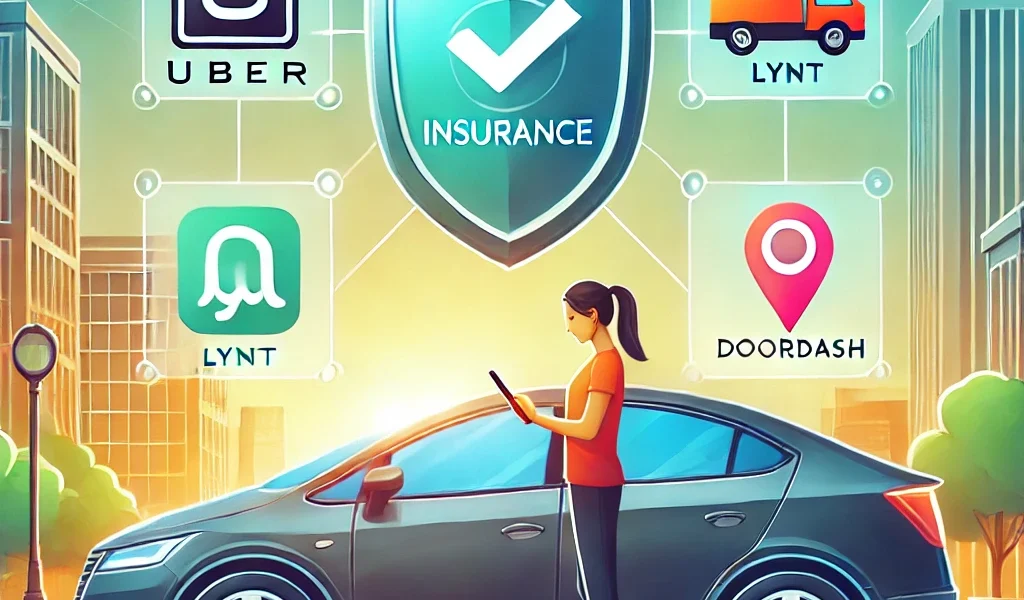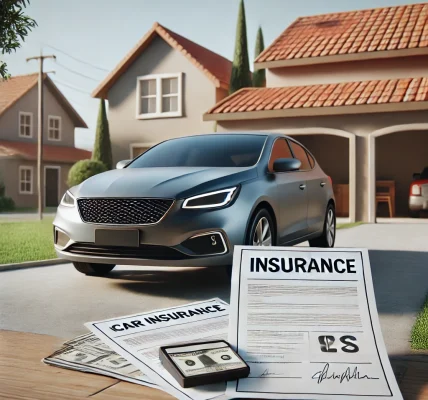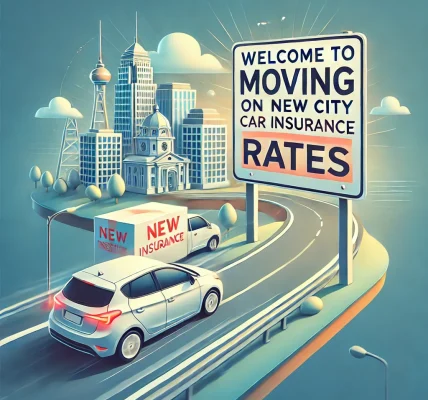Introduction
With the rapid rise of rideshare and delivery services like Uber, Lyft, DoorDash, and Instacart, more drivers are using their personal vehicles for commercial purposes. However, many drivers may not realize that their standard personal car insurance policy does not fully cover them when they are working. Understanding car insurance for rideshare and delivery drivers is crucial to avoid financial risks and ensure adequate protection in case of an accident.
This guide will explain the different types of car insurance needed for rideshare and delivery drivers, why personal policies are not enough, and how to find the best coverage without overpaying.
Why Standard Car Insurance Isn’t Enough
A personal auto insurance policy is designed for private use, meaning it covers you when you’re driving for personal errands, commuting, or leisure activities. However, when you start using your vehicle for rideshare or delivery purposes, it becomes a commercial activity. Most personal car insurance policies explicitly exclude coverage for accidents that occur while the driver is engaged in a commercial activity.
If you get into an accident while working and only have personal insurance, your claim could be denied, leaving you responsible for all damages and medical expenses.
Understanding Rideshare and Delivery Driving Phases
Insurance companies categorize the time you spend driving for rideshare or delivery services into different phases:
- Period 0: The app is off, and you are using the vehicle for personal purposes. Your personal auto insurance applies.
- Period 1: The app is on, and you are waiting for a ride request or delivery order. Some rideshare companies provide limited liability coverage during this period, but not comprehensive or collision coverage.
- Period 2: You have accepted a request and are en route to pick up the passenger or order. The rideshare/delivery company’s insurance covers you, but the extent of coverage varies.
- Period 3: The passenger is in the vehicle or the delivery is in progress. Rideshare and delivery companies provide their highest level of coverage during this phase.
Each of these phases impacts how your insurance coverage applies, and having the right policy ensures you are covered at all times.
Types of Car Insurance Coverage for Rideshare & Delivery Drivers
1. Personal Auto Insurance
- Covers personal driving activities.
- Does NOT cover commercial activities (rideshare/delivery driving).
2. Rideshare/Digital Platform Insurance Provided by Companies
- Uber, Lyft, DoorDash, and other companies provide some insurance coverage, but it has limitations.
- Coverage varies based on the phase of driving.
- Liability coverage is often provided, but comprehensive and collision coverage may be limited.
3. Rideshare Endorsement (Gap Coverage)
- A rideshare endorsement can be added to your personal policy to fill coverage gaps during Period 1 (waiting for a ride or order).
- Not all insurance providers offer this option, so it’s important to check with your insurer.
4. Commercial Auto Insurance
- Required for full-time rideshare or delivery drivers.
- Provides continuous coverage for both personal and commercial driving.
- More expensive than rideshare endorsements but offers the most comprehensive protection.
How to Choose the Right Insurance Policy
- Check What Your Rideshare or Delivery Company Provides
- Review the coverage offered by Uber, Lyft, DoorDash, or your specific platform.
- Understand the deductibles and limitations.
- Consider a Rideshare Endorsement
- If you only drive part-time, a rideshare endorsement might be sufficient.
- Compare costs and coverage with different insurance providers.
- Look Into Commercial Auto Insurance
- If you drive full-time or for multiple services, commercial insurance might be the best option.
- Ensure it covers liability, collision, and comprehensive damages.
- Compare Quotes from Multiple Insurers
- Shop around for the best rates and coverage options.
- Some insurance providers specialize in rideshare insurance and offer better deals.
- Understand Policy Limits and Deductibles
- Higher deductibles usually mean lower premiums but higher out-of-pocket costs in case of an accident.
- Choose a policy that balances affordability with sufficient coverage.
How Much Does Rideshare/Delivery Insurance Cost?
The cost of rideshare or delivery insurance varies depending on:
- Your location
- Your driving history
- The insurance provider
- The level of coverage you choose
On average, adding a rideshare endorsement costs between $10 to $40 per month, while a full commercial policy can range from $1,200 to $3,000 per year. Shopping around for quotes can help you find the best price.
What Happens If You Drive Without Proper Insurance?
If you don’t have the right insurance while driving for a rideshare or delivery company:
- Your personal insurance may deny claims related to an accident.
- You could be held personally liable for damages and medical expenses.
- Your insurance provider may cancel your policy for misrepresentation.
- You might face legal and financial consequences.
Final Thoughts
Driving for rideshare and delivery services can be a great way to earn money, but it comes with added insurance risks. Understanding how insurance works, what coverage options are available, and ensuring you are properly covered can protect you from unexpected financial burdens.
Before hitting the road, review your current insurance policy, check what coverage your rideshare or delivery platform provides, and consider a rideshare endorsement or commercial auto policy if needed. Taking these steps will ensure you are protected in any situation and can continue earning without unnecessary risks.
Need Help Finding the Right Insurance?
If you’re unsure which insurance policy is best for you, consult an insurance agent who specializes in rideshare coverage. Comparing multiple quotes and understanding your options can save you money while ensuring full protection.
By staying informed and properly insured, you can focus on maximizing your earnings while driving with peace of mind!




